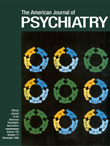Dr. Kranzler and Colleagues Reply
To the Editor: We thank both of the authors who commented on our recently published clinical case conference. We agree that the literature on alcohol withdrawal delirium is inadequate to address a number of important clinical issues. As Dr. Adinoff correctly points out, data on the prevalence of delirium tremens are from an earlier time, and in light of therapeutic developments, the 5% figure quoted in the introduction would represent the upper bound for prevalence. As pointed out by Dr. Fink, the use of ECT to manage alcohol withdrawal delirium, although of potential value, lacks empirical evaluation. We are pleased that our case review has helped to highlight the need for systematic study of alcohol withdrawal delirium and delirium tremens.
We agree that although the distinction is often not made clinically, it is important to differentiate alcohol withdrawal delirium from other symptoms in delirium tremens, since autonomic hyperactivity does not follow the same time course as does the delirium. As regards the choice of a benzodiazepine for treatment of alcohol withdrawal, we believe that lorazepam or oxazepam, which have an intermediate duration of action, is preferable to longer-acting benzodiazepines for two reasons. First, they do not require hydroxylation, so that in the context of hepatic dysfunction, they will not accumulate to toxic levels. Second, and more important, since treatment of alcohol withdrawal is increasingly being done in an ambulatory setting, the use of a long-acting benzodiazepine may be problematic: it has a greater risk for additive sedation if alcohol is consumed concurrently. Finally, the clinical experience of Dr. Adinoff notwithstanding, it is not clear that in all cases, the aggressive treatment of early alcohol withdrawal can prevent the development of delirium tremens. The fact that delirium tremens can have its onset in the absence of early withdrawal symptoms argues against a simple progressive model for all cases of alcohol withdrawal. Clarification of these important clinical issues will also depend upon systematic empirical investigation.



